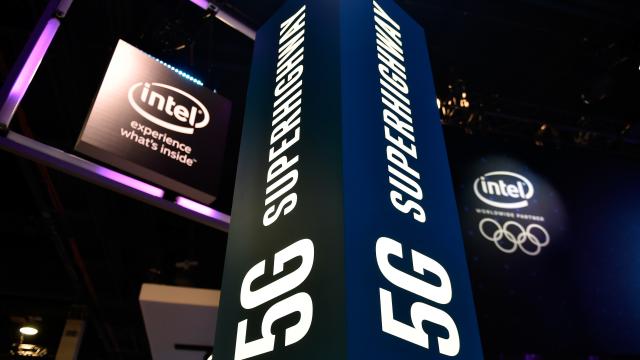Apple poached Intel’s lead developer for 5G phone modems, Umashankar Thyagarajan, in February—just weeks before it buried the hatchet with rival chip supplier Qualcomm this April, according to a report in the Telegraph on Sunday.
The hire apparently wasn’t a closely held secret (Thyagarajan now lists an “Architecture” job at Apple on his LinkedIn page). But it was a major victory for Apple, which has long been rumoured to be mulling a shift into producing its own chips in-house.
Embroiled in a abandoning its 5G mobile ambitions entirely.
The Telegraph wrote that internal emails show Thyagarajan was an important player in Intel’s iPhone XS and XR projects, and his switch to team Apple was seen as a big loss:
Mr Thyagarajan’s departure is understood to have been a setback to Intel’s efforts, forcing the company to reshuffle the 5G project. Shortly afterwards, Intel said it would not be able to release a 5G smartphone chip until 2020, more than a year after Qualcomm.
According to an email sent to Intel staff, written by executives Messay Amerga and Abhay Joshi, Mr Thyagarajan had “played a key role” in the Intel chip that featured in last year’s iPhones and he had been the project engineer on developing its 5G chip, known as XMM 8160.
Mr Thyagarajan’s appointment will add to rumours that Apple is planning to make its own smartphone modem instead of buying them from partners.
The Telegraph also noted that rumours have circulated Apple is planning to buy up the rest of Intel’s chip modem business entirely.
A Wall Street Journal report on Friday quoted sources as saying that Intel was still considering selling off parts of its modem chip business to “Apple or another acquirer,” but that talks had cooled around the time of the Apple-Qualcomm settlement. Moor Insights & Strategy principal Patrick Moorhead told the paper Intel’s modem chip business has been costing it around $US1 ($1) billion annually and its “value goes down with every second” that passes without a sale, though potential other buyers include Broadcom, ON Semiconductor Inc., Samsung, or Chinese company Unisoc Communications Inc.
Fast Company reported in early April, before the settlement, that a source said Apple “has a team of between 1000 and 1200 engineers working on the modem chips for future iPhones” in San Diego lured from both Intel and Qualcomm. However, that report also noted while it is “possible that future iPhone modem chips could be designed at that facility by Apple employees, and then fabricated by TSMC or Samsung,” that will likely only happen years in the future. Fast Company’s source said they believed the company’s best choice was to return to Qualcomm, which does seem to be what happened—albeit not before Apple brought on board some of Intel’s talent.
